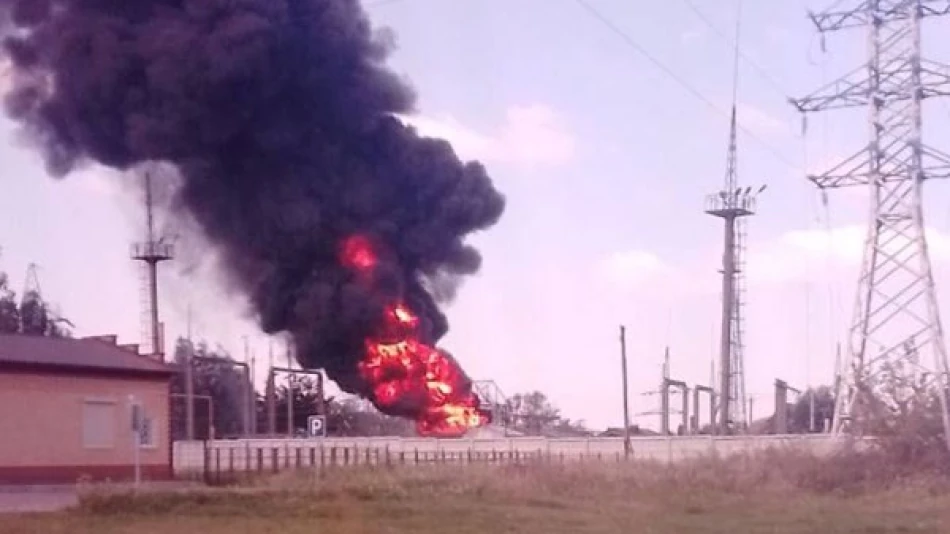
Ukraine Strikes Russian Oil Pipeline in Daring Cross-Border Raid
Ukraine Strikes Russian Oil Pipeline Again, Testing EU Energy Vulnerabilities
Ukraine has launched another targeted attack on Russia's critical Druzhba oil pipeline in the Bryansk region, causing what Ukrainian officials describe as "comprehensive fire damage." The strike highlights Ukraine's growing strategy of disrupting Russian energy exports while exposing the continued energy dependence of EU members Hungary and Slovakia on Moscow's oil supplies, even amid broader European sanctions.
Strategic Pipeline Under Repeated Attack
Robert Brovdi, commander of Ukraine's drone forces, confirmed the Sunday attack via Telegram, marking the latest in a series of Ukrainian strikes on the Druzhba pipeline system. The pipeline serves as a vital artery for Russian crude oil exports to Hungary and Slovakia—two EU nations that have secured exemptions from the bloc's broader energy sanctions against Russia.
Despite the reported "comprehensive damage," both recipient countries quickly moved to reassure markets. Hungary's MOL oil and gas company stated that crude shipments continue on schedule, while Slovak Economy Minister Denisa Sakova confirmed via Facebook that her country's oil supplies remain unaffected.
A Pattern of Energy Warfare
This latest strike represents part of Ukraine's calculated campaign to target Russian energy infrastructure, with oil shipments to Hungary and Slovakia experiencing multiple disruptions over recent weeks. The attacks demonstrate Kyiv's ability to project force deep into Russian territory while simultaneously pressuring EU countries that maintain energy ties with Moscow.
EU's Energy Contradiction
The continued flow of Russian oil through the Druzhba pipeline underscores a fundamental tension within EU energy policy. While the bloc has imposed sweeping sanctions on Russian energy imports, Hungary and Slovakia secured carve-outs citing their landlocked geography and heavy reliance on Russian crude. This arrangement generates approximately $1 billion monthly in revenue for Moscow, according to energy analysts.
Market and Geopolitical Implications
For energy markets, these repeated attacks signal growing supply chain vulnerabilities in a region already grappling with energy security concerns. The strikes force both Hungary and Slovakia to maintain costly backup supply arrangements while potentially accelerating their long-term diversification efforts away from Russian energy.
From a strategic perspective, Ukraine's targeting of the pipeline serves multiple objectives: reducing Russian revenue streams, demonstrating military reach, and applying indirect pressure on EU countries to further distance themselves from Russian energy dependence. The attacks also showcase Ukraine's sophisticated drone capabilities, which have evolved significantly since the conflict's early stages.
Long-term Energy Realignment
These pipeline strikes may ultimately accelerate Central Europe's energy transition, similar to how Germany fast-tracked its move away from Russian gas following the Nord Stream disruptions. Hungary and Slovakia's current exemptions from EU oil sanctions were intended as temporary measures, but repeated supply disruptions could force earlier action on alternative supply routes and sources.
The frequency and precision of these attacks suggest Ukraine views energy infrastructure as legitimate military targets that directly impact Russia's war financing capabilities, setting a precedent that could reshape how conflicts affect global energy flows in an increasingly interconnected world.
Most Viewed News

 Layla Al Mansoori
Layla Al Mansoori






